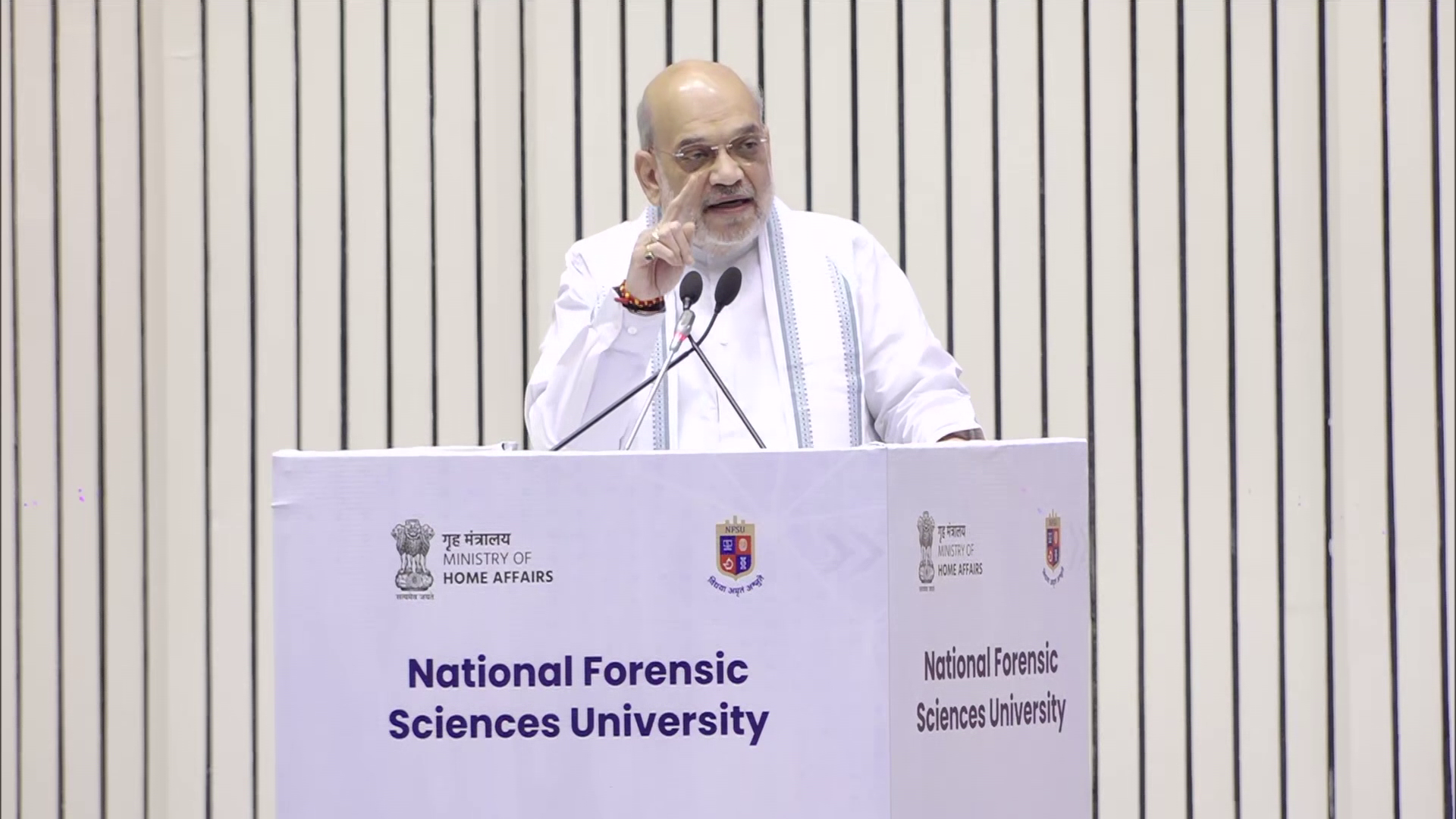Union Home Minister and Minister of Cooperation Amit Shah on Monday emphasized the transformative role that forensic science will play in India’s reformed criminal justice system.
Addressing the All India Forensic Science Summit 2025 in New Delhi, organized by the National Forensic Sciences University (NFSU), Shah credited Prime Minister Narendra Modi for revolutionizing India’s justice system by emphasizing the need for scientific and technology-driven investigations. He noted that modern crimes often transcend borders, facilitated by advancements in communication and information technologies, making robust forensic capabilities more crucial than ever.
The home minister highlighted the introduction of the Bharatiya Nyaya Sanhita, Bharatiya Nagarik Suraksha Sanhita, and Bharatiya Sakshya Adhiniyam as the most significant legal reforms of the 21st century. He underscored that these laws replace outdated colonial-era codes and integrate modern tools such as e-documents, digital summons, and forensic evidence into the legal process. Forensic investigations are now mandatory for crimes punishable by more than seven years—an important step toward improving the current conviction rate of 54 percent.
Shah cited recent cases where rape and murder trials were resolved and convictions secured within weeks. He highlighted the digitization of law enforcement infrastructure: 100 percent of police stations are now connected to the Crime and Criminal Tracking Network and Systems (CCTNS), with over 14 crore First Information Reports (FIRs) and associated data accessible online. Systems like electronic Forensics (e-Forensics), the National Automated Fingerprint Identification System (NAFIS), and electronic Prison Management System (e-Prison) are building a vast national database, which will soon be enhanced with Artificial Intelligence (AI) to support predictive policing and crime prevention.
Tracing the roots of forensic education in India, Shah recalled that it was Prime Minister Modi—then Chief Minister of Gujarat—who launched the Gujarat Forensic Sciences University in 2009. This has since evolved into the world’s first National Forensic Sciences University, formally established in 2020. Today, seven campuses are operational, with nine more opening soon and ten additional ones proposed, ensuring a nationwide presence, the home minister said.
Each campus will focus on a specialized domain—such as drone, marine, or corporate forensics—and the university aims to train around 36,000 forensic professionals annually, he added.
The home minister alled for a more humanized justice system, proposing psychological counseling and categorization of offenders based on the nature and motive of their crimes. He said a forensic-based prisoner rehabilitation system would be developed in the coming years.
Shah also mentioned the establishment of the Modus Operandi Bureau, aimed at studying criminal behavior to enhance crime prevention strategies. He called for a deeper collaboration between the Ministry of Home Affairs and NFSU, and congratulated young innovators for their contributions during the summit’s hackathon and for promoting the use of Hindi in forensic science.
Shah stressed that India is on a determined path toward building a crime-free, just, and technologically empowered society.




















